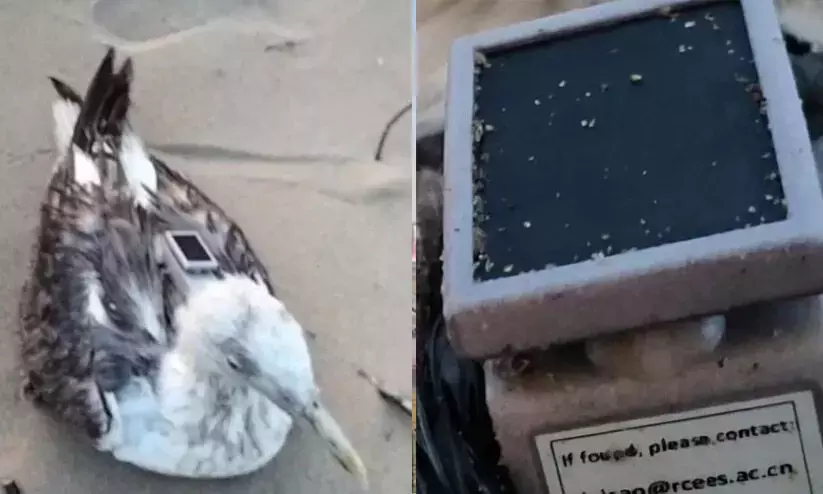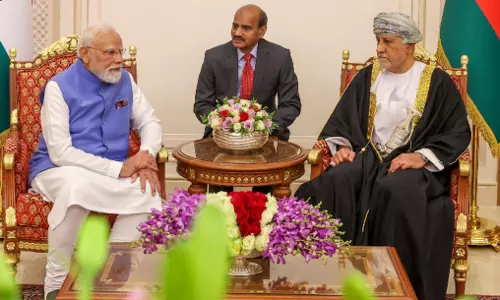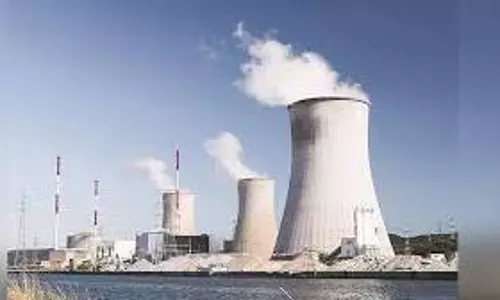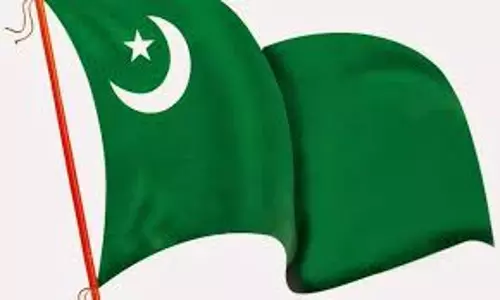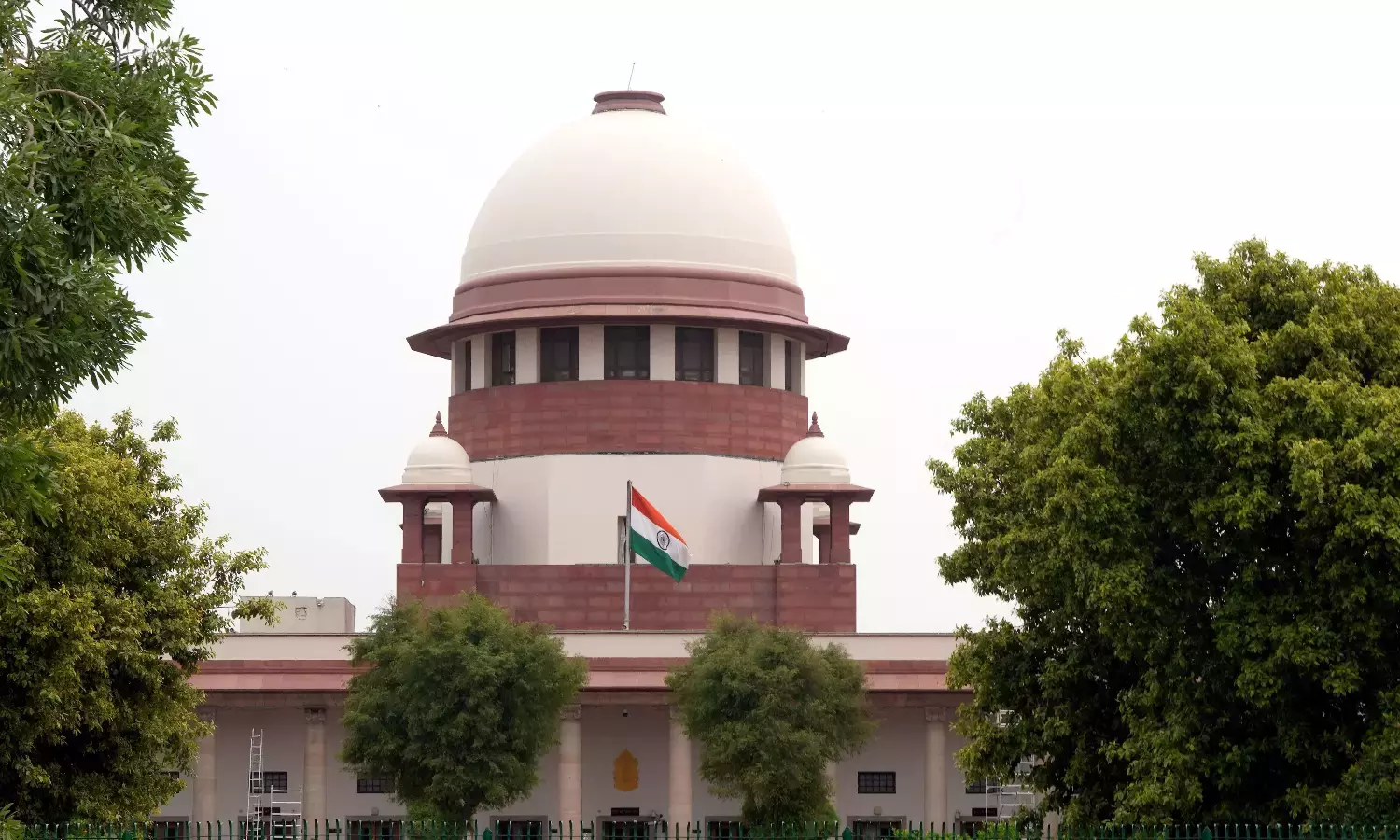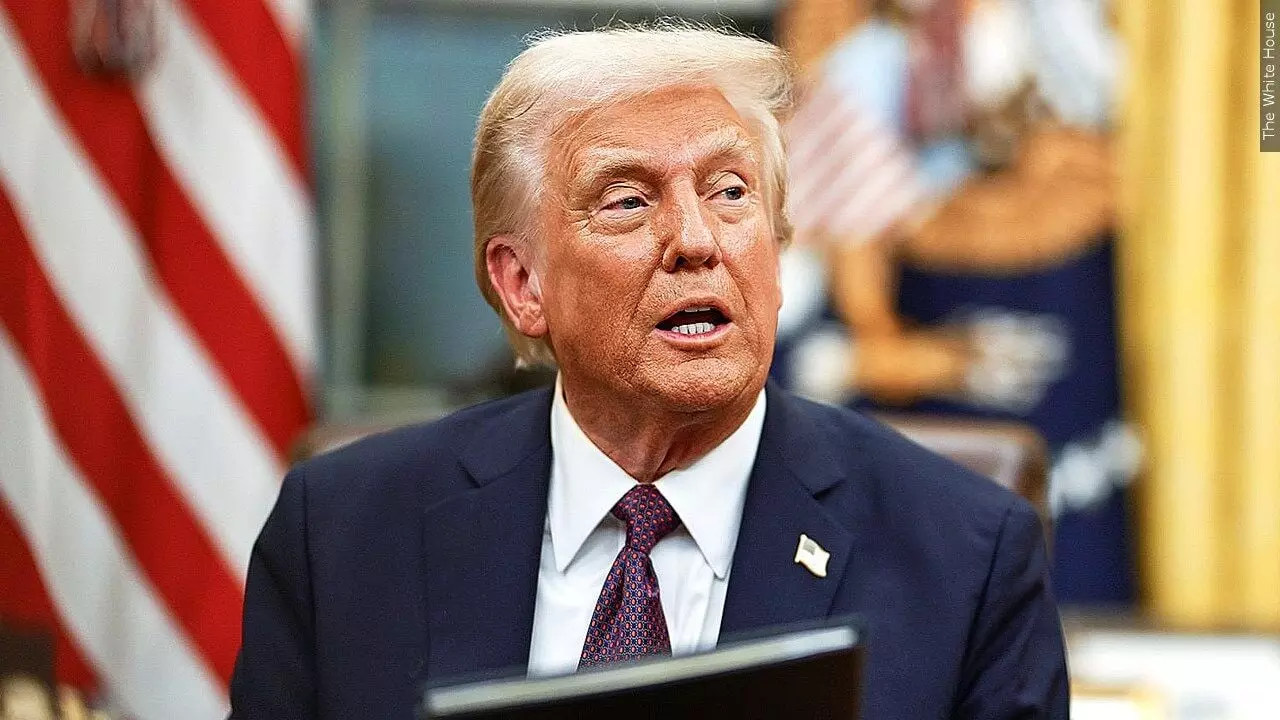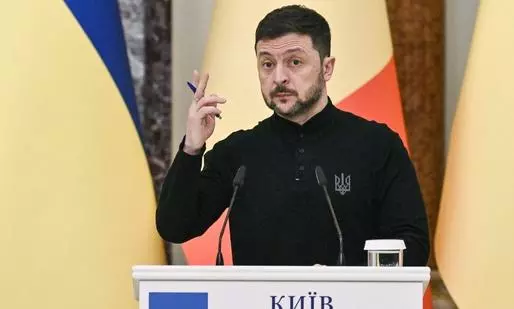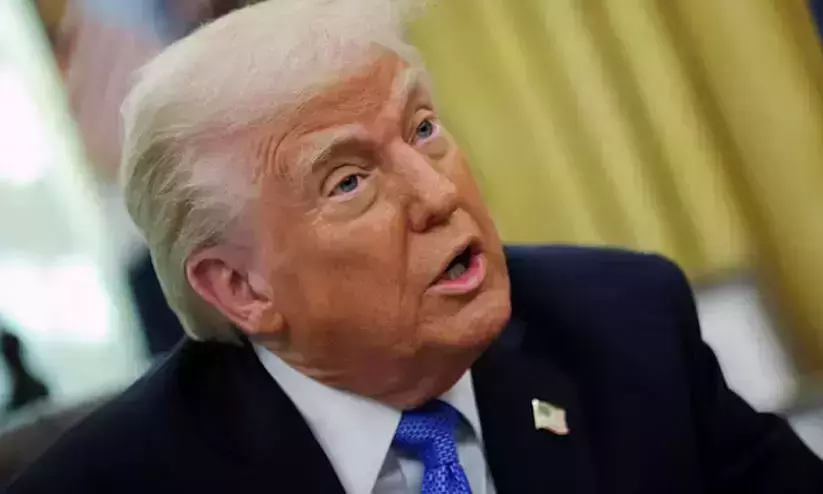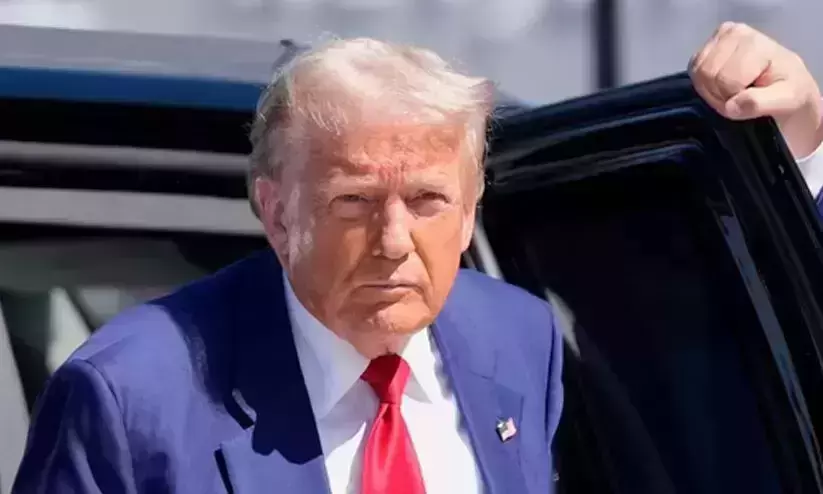
Trump joins Japan trade talks amid global tariff tensions
text_fieldsWashington: U.S. President Donald Trump on Wednesday directly joined trade negotiations with Japanese officials, underlining the high stakes for the U.S. amid escalating trade tensions and economic uncertainties triggered by his sweeping tariff policies. The rare move signals Trump’s urgency to secure quick trade deals after his tariffs shook financial markets and raised fears of a potential recession.
The Republican president attended the talks alongside Treasury Secretary Scott Bessent and Commerce Secretary Howard Lutnick, both key figures in shaping the administration’s economic and trade strategies.
"Hopefully something can be worked out which is good (GREAT!) for Japan and the USA!" Trump posted on social media before the meeting. Following the discussions, he wrote, “A Great Honor to have just met with the Japanese Delegation on Trade. Big Progress!”
Trump’s direct involvement in the negotiations reflects his desire to expedite a series of trade agreements, especially as rival economic powers like China advance their own partnerships. The talks are a high-profile test of Trump's self-professed dealmaking prowess, particularly as countries seek to limit the fallout from U.S. import taxes.
The tariffs, first announced by Trump on April 2, rattled global markets and prompted widespread economic concerns. To ease the pressure, Trump temporarily paused some of the import taxes for 90 days and sharply increased tariffs on Chinese goods, reaching up to 145 percent. Japan was temporarily spared from a blanket 24 percent tariff but remains subject to a 10 percent base tariff and a 25 percent tax on imports of cars, auto parts, steel, and aluminum.
The ongoing negotiations are crucial. Japan has a low average tariff rate of 1.9 percent on imports and shares a strong strategic alliance with the U.S. Wednesday’s meeting will likely determine whether the Trump administration can broker a substantial agreement that restores confidence among American voters, global allies, and volatile financial markets.
Meanwhile, China is leveraging the uncertainty caused by the tariffs. President Xi Jinping has been visiting Southeast Asian nations to promote China as a more stable and reliable trade partner.
Japan is one of the first countries to initiate formal negotiations with the U.S. following the tariff announcement. According to Trump and his administration, they’ve received a flood of interest from nations looking to strike deals and avoid the harsh tariffs. Israel and Vietnam have reportedly offered to eliminate their own tariffs entirely, though Trump has yet to respond definitively.
On Thursday, Trump is set to meet Italian Prime Minister Giorgia Meloni, who is expected to convey messages from the European Union regarding how to resolve the tariffs imposed on the 27-member bloc.
Despite international attention, Trump is also facing mounting domestic criticism. California Governor Gavin Newsom filed a lawsuit on Wednesday, alleging that Trump exceeded his authority by declaring an economic emergency to justify the tariffs. Newsom argued the tariffs had triggered economic instability.
Federal Reserve Chair Jerome Powell echoed these concerns, warning that the scale of the tariff hikes would likely harm the U.S. economy. “The level of tariff increases announced so far is significantly larger than anticipated, and the same is likely to be true of the economic effects which will include higher inflation and slower growth,” Powell said at the Economic Club of Chicago.
Japan has been scrambling to respond to the unfolding trade crisis. Prime Minister Shigeru Ishiba’s government has established a special task force to analyze the impact of the U.S. tariffs and extend support to affected companies. While the Japanese administration has refrained from disclosing what compromises it might offer, it continues to push for exemptions.
The Trump administration, for its part, has not revealed clear demands. It aims to reduce the $68.5 billion trade deficit with Japan and secure wider market access for U.S. products. Trump has also stated that revenues from the tariffs could be used to reduce the federal budget deficit.
“Japan is coming in today to negotiate Tariffs, the cost of military support, and TRADE FAIRNESS,” Trump posted on Wednesday.
U.S. officials met with Japan’s chief trade negotiator, Economic Revitalization Minister Ryosei Akazawa, in Washington. Before departing from Tokyo’s Haneda Airport, Akazawa told reporters, “I am prepared for the talks. I will negotiate in order to firmly protect our national interest.” He noted that both Scott Bessent and U.S. Trade Representative Jamieson Greer are “known to be pro-Japan and professionally talented,” adding he hoped to build a strong relationship of trust with them.
“I believe we can have good talks toward a win-win relationship that will serve national interest for both Japan and the United States,” Akazawa said.
Japan has maintained that Trump's tariff actions likely breach bilateral agreements and World Trade Organization rules. While Prime Minister Ishiba has said he is against retaliatory tariffs, he has also expressed reluctance to rush into a deal that could require major concessions.
As the 90-day tariff reprieve ticks down, all eyes remain on Washington to see whether Trump can transform his aggressive trade stance into tangible economic agreements—or if the risks of his strategy will outweigh the rewards.
With PTI inputs




